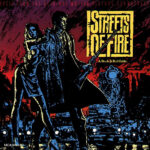Pop music has long faced accusations of being formulaic, superficial, and easily forgotten. From the manufactured sounds of 1950s bubblegum pop to the repetitive beats of 1970s disco, the carefully crafted boy bands of the 1990s, and even today’s chart-toppers, the genre is often criticized for its lack of originality. Unfortunately, this tendency towards sameness isn’t exclusive to secular music. Christian music, including the realm of Christian Worship Songs, also grapples with the temptation to conform, sometimes incorporating elements seemingly without purpose other than to fit in with current trends.
This week, a new worship song (at least new to me) brought this issue into sharp focus. Instead of striving for genuine expression, it appeared to prioritize relevance by mirroring existing popular worship formulas. The result, sadly, was a sacrifice of potential beauty on the altar of contemporary appeal. Before delving into the specifics of this particular song – and revealing its title (resist the urge to scroll ahead!) – let’s consider a well-known example from mainstream music that illustrates how chasing trends can diminish artistic impact: Guns N’ Roses’ “November Rain.”
The “November Rain” Effect: When Following the Formula Falls Short
Following the phenomenal success of their initial albums, the hard rock powerhouse Guns N’ Roses released the ambitious double album Use Your Illusion I & II in 1991. While showcasing a stylistic evolution, Use Your Illusion still contained moments of exceptional musicianship and songwriting brilliance. However, one track, “November Rain,” while popular, inadvertently highlights the pitfalls of adhering too closely to established formulas.
In many ways, “November Rain” is a remarkable song. It boasts a compelling piano foundation, a lush orchestral arrangement, and not one, but two iconic guitar solos from Slash. For much of its duration, Guns N’ Roses sets a high standard for rock music composition. However, the song’s ending is where it falters, succumbing to predictable tropes.
“November Rain” explores themes of unrequited love, using a haunting and beautiful musical landscape and evocative lyrics to draw the listener into Axl Rose’s emotional world. As the song progresses towards its conclusion, the violins create a descending scale, lingering on a final, poignant note. Then, the piano re-enters, shifting the mood and incorporating the familiar hallmarks of a hard rock power ballad. The song, in its final moments, embraces a stadium-rock cliché that undermines the nuanced emotional journey established earlier. You can hear this shift clearly:
[No image in original snippet provided to insert here]
While commercially successful, the ending of “November Rain” feels somewhat tacked on, a concession to the expected grandeur of a rock ballad rather than a natural culmination of the song’s emotional arc. It’s a prime example of how even talented artists can dilute their creative vision when striving for predictable “relevance.”
The Trap of Relevance in Christian Worship Music
This “November Rain” effect resonates deeply with the current state of christian worship songs. There’s often a palpable pressure within Christian music to be “relevant,” to connect with contemporary culture, and to attract wider audiences. While understandable on some level, this pursuit of relevance can inadvertently lead to a homogenization of sound and lyrical themes. The desire to be accessible and appealing can sometimes overshadow the very essence of worship: authentic expression and a genuine connection with the divine.
Too often, christian worship songs borrow heavily from current pop music trends in terms of instrumentation, song structure, and lyrical phrasing. While incorporating contemporary musical styles isn’t inherently negative, the danger lies in prioritizing trendiness over substance. When the primary goal becomes sounding “like everything else” on the radio, the unique voice and message of worship music can become diluted. The focus shifts from heartfelt devotion to stylistic imitation.
[No image in original snippet provided to insert here]
Just as the ending of “November Rain” feels like a pre-programmed power ballad conclusion, many contemporary christian worship songs can feel as though they are ticking boxes to achieve a certain commercially viable sound. The result can be music that is technically proficient and broadly appealing, but ultimately lacks the depth, originality, and emotional resonance that truly moves the soul and fosters genuine worship.
Finding Authenticity in Christian Worship
The challenge for creators of christian worship songs is to find a balance between contemporary expression and authentic worship. It’s about crafting music that is both relevant to today’s listeners and deeply rooted in the timeless truths of faith. This requires a conscious effort to move beyond imitation and formulaic approaches, and to instead cultivate originality and vulnerability in songwriting.
True relevance in christian worship songs isn’t about chasing trends, but about expressing genuine faith in a language that connects with people in their contemporary context. It’s about creating music that is both artistically compelling and spiritually meaningful, songs that draw listeners closer to God through honest expression and heartfelt devotion, rather than through predictable patterns and clichés. It’s time for christian worship songs to prioritize authenticity and artistic integrity over the fleeting allure of mere relevance, and in doing so, rediscover the true power and beauty of worship music.

